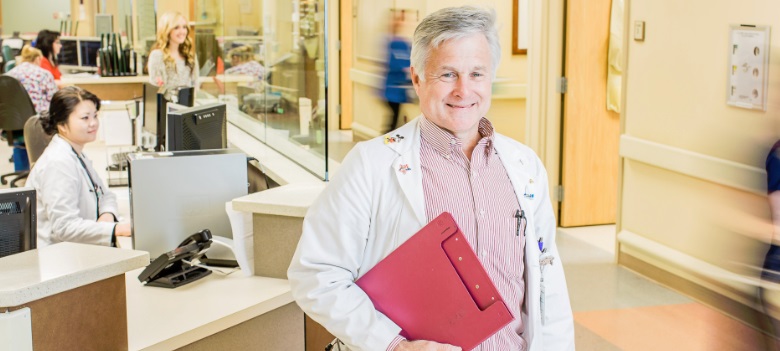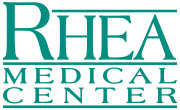
Emergency Department Vision
1. To provide our community with accessible, high-quality care through the continuum, from non-urgent to life-threatening injuries.
2. The customer will receive knowledgeable, prompt, caring service while in the emergency department.
3. The customer will leave the emergency department with the confidence that the care they received was appropriate to their age and acuity, regardless of the nature of their visit.
Staffing
The emergency department at Rhea Medical Center operates around the clock, providing services in emergency medicine with physicians who are board-certified or specialize in emergency medicine.
The department is staffed at all times with emergency nurses and paramedics with specialized training and certification to provide cardiac life support, pediatric life support, trauma, and critical care. The emergency department paramedics have advanced training in resuscitation and triage.
Quick Access to Services
Our innovative emergency admission procedures ensure that you are seen by a nurse and/or physician within minutes of your arrival. Our overall turn-around time remains approximately 90 minutes for urgent and non-urgent patients.
Description of Services
The emergency department provides emergency services with physician coverage and specialty consultation available in orthopedics, pediatric, and surgical services. The Emergency Department provides evaluation and care to any individual who presents. All who present receive a timely triage (assessment) and are then classified according to the acuity of their complaint. In addition, a medical screening exam (MSE) is performed by a licensed practitioner to determine whether an emergency medical condition (EMC) exists. In the case of the emergency patient, evaluation and stabilization of the patient is done under the direction of the physician, and the patient is admitted or transferred in accordance with federal guidelines.
The emergency department sees approximately 20,000 patients per year. A high percentage of these are emergency patients requiring immediate evaluation and stabilization. Trauma patients with multiple injuries are stabilized and transferred to a Level I trauma center in the area. Transfer of these patients can be by ground or air.
Security and Traffic Flow
In an effort to better control patient and visitor traffic, and to provide patient and staff security, security doors have been installed in the department. These doors may be accessed only by employees and physicians. In the best interest of patient care and staff safety, visitors to the emergency department must be controlled. This security measure is in line with modern departments that are usually seen in larger cities.
Visiting Policy
This policy is applicable to visitors in the emergency department:
1. Visitors will be restricted to immediate family or significant others, with priority granted according to the patient’s wishes.
2. Visiting by children under 12 years is at the discretion of the charge nurse.
3. Two visitors per emergency department patient at a time.
4. Both parents may visit children.
5. Visitors are allowed to remain with the patient if:
- It is appropriate to patient’s condition and/or needs.
- The visitor stays at the patient’s bedside, not in the hallway or any other area in the emergency department.
The Emergency Department nursing staff members may nullify visiting privileges at their discretion as warranted by each patient’s immediate needs and overall emergency department functions.
6. Visitors of patients under respiratory precautions for possible tuberculosis:
- Visitors limited to one person with two 15-minute visits during the course of the emergency department care.
- All visitors of patients under respiratory precautions for possible tuberculosis must wear appropriate masks.
- Nursing staff will give visitors instructions regarding compliance with strict respiratory precautions and of the operation of respiratory masks, as well as the purpose of the devices.
7. Visitors must be free of contagious diseases or illnesses.
8. Patient’s valuables should be kept with family members/ significant others.
9. The emergency department will notify local law enforcement if a problem is identified that will affect ED functioning and safety.
